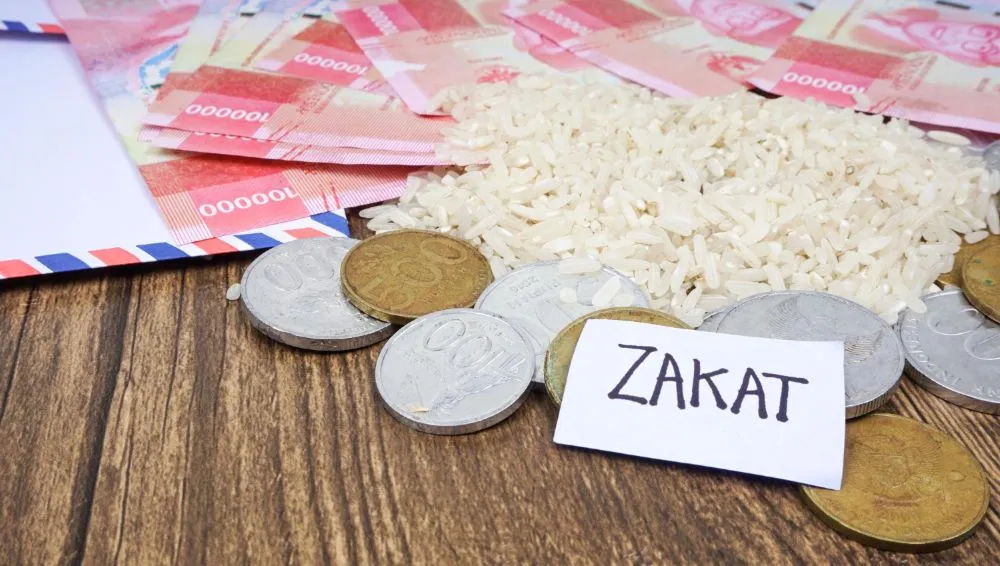Sunnah fasting is a special form of worship that brings numerous benefits, both spiritually and physically. Its virtues range from multiplied rewards to intercession on the Day of Judgment.
In 2025, there are many opportunities to perform sunnah fasting, such as Monday-Thursday fasts, Ayyamul Bidh, and fasting during sacred months like Rajab and Muharram. To help you plan better, here is the complete sunnah fasting schedule for 2025 along with its virtues.
2025 Sunnah Fasting Schedule
The year 2025 corresponds to the Hijri years 1446 and 1447, which include many moments of worship—particularly sunnah fasting. This practice is recommended to help Muslims draw closer to Allah and follow the Sunnah of the Prophet Muhammad Ṣallallāhu ‘alayhi wa sallam.
Here is the full sunnah fasting schedule for 2025:
Sunnah Fasting Dates 2025
|
Gregorian Date |
Hijri Month |
Type of Fast |
|
13–15 January 2025 |
Rajab |
Ayyamul Bidh |
|
12–14 February 2025 |
Sha'ban |
Ayyamul Bidh |
|
14 February 2025 |
Sha'ban |
Nisfu Sha'ban (Mid-Sha'ban) |
|
Starting 1 April 2025 |
Shawwal |
Six Days of Shawwal |
|
12–14 April 2025 |
Shawwal |
Ayyamul Bidh |
|
11–13 May 2025 |
Dhu al-Qa'dah |
Ayyamul Bidh |
|
4 June 2025 |
Dhu al-Hijjah |
Tarwiyah Fast |
|
5 June 2025 |
Dhu al-Hijjah |
Arafah Fast |
|
10–12 June 2025 |
Dhu al-Hijjah |
Ayyamul Bidh |
|
4 July 2025 |
Muharram |
Tasu’a |
|
5 July 2025 |
Muharram |
Ashura |
|
4–6 July 2025 |
Muharram |
Muharram Fast |
|
8–10 July 2025 |
Muharram |
Ayyamul Bidh |
|
7–9 August 2025 |
Safar |
Ayyamul Bidh |
|
6–8 September 2025 |
Rabi' al-Awwal |
Ayyamul Bidh |
|
5–7 October 2025 |
Rabi' al-Thani |
Ayyamul Bidh |
|
4–6 November 2025 |
Jumada al-Ula |
Ayyamul Bidh |
|
4–6 December 2025 |
Jumada al-Akhirah |
Ayyamul Bidh |
Types of Sunnah Fasting
In addition to knowing the schedule, it's important to understand the different types of sunnah fasting along with their hadiths. This helps us carry out the worship more wholeheartedly and with understanding.
1. Monday and Thursday Fasts
These are regular practices of the Prophet Muhammad Ṣallallāhu ‘alayhi wa sallam and are highly encouraged (sunnah mu’akkadah).
“Deeds are presented [to Allah] on Mondays and Thursdays, and Allah forgives every Muslim except those who are estranged.”
(Hadith Ahmad no. 74–75)
2. Ayyamul Bidh (White Days Fasting)
Observed on the 13th, 14th, and 15th of each Hijri month during full moon nights.
“Fast three days of each month, for each good deed is rewarded tenfold.”
(Hadith Bukhari no. 1976)
If done regularly, it equals fasting the entire year.
3. Arafah Fast
Observed on the 9th of Dhu al-Hijjah for those not performing Hajj.
“Fasting on the Day of Arafah expiates the sins of the previous year and the following year.”
(Hadith Muslim no. 1162)
4. Tasu’a and Ashura Fasts
Observed on the 9th (Tasu’a) and 10th (Ashura) of Muharram, commemorating the rescue of Prophet Musa and his people.
“Fasting on the Day of Ashura expiates the sins of the previous year.”
(Hadith Muslim no. 1162)
5. Six Days of Shawwal
Observed after Eid al-Fitr.
“Whoever fasts Ramadan and follows it with six days of Shawwal, it is as if he fasted the entire year.”
(Hadith Muslim no. 1164)
6. The Fast of Prophet Dawud
The most beloved form of fasting to Allah—alternating days of fasting and breaking fast.
“Fast one day and break the next. That is the fast of Dawud.”
(Hadith Bukhari no. 3418; Muslim no. 1159)
7. Muharram Fast
Beyond Tasu’a and Ashura, fasting throughout Muharram is highly encouraged.
“The best fasting after Ramadan is in Allah’s month of Muharram.”
(Hadith Muslim no. 1163)
8. Sha'ban Fast
The Prophet often fasted in Sha'ban as a preparation for Ramadan.
“He used to fast most (or all) of Sha'ban.”
(Hadith Bukhari no. 1969; Muslim no. 1156)
9. Tarwiyah Fast
Observed on the 8th of Dhu al-Hijjah, one day before Arafah. Some scholars say it helps spiritually prepare for Arafah and may carry the virtue of forgiveness for one year.
Virtues of Sunnah Fasting
Sunnah fasting is more than just a complement to obligatory fasting—it is a path to spiritual growth and divine mercy. Here are some of the virtues:
- Erases minor sins
- Strengthens the relationship with Allah
- Trains patience and sincerity
- Encourages discipline and self-control
- Multiplies rewards
- Complements Ramadan fasting
- Protects from Hellfire
- Purifies the soul and increases piety
- Grants intercession in the Hereafter
- Eases hardships on the Day of Judgment
- Deepens love for worship
- Makes supplications more likely to be accepted
Knowing the schedule of sunnah fasting allows you to plan better and not miss out on its abundant virtues. One of the key blessings is that your prayers are more likely to be answered. So, take advantage of these special days to seek what you need from Allah SWT.
While making du’a is essential, it should be accompanied by effort. One such effort could be applying for Sharia Financing through the Sharia Business Unit (UUS) of BFI Finance.
With Sharia Multipurpose Financing, you can meet various needs—from business capital and purchasing goods to obtaining services—through ijarah or murabahah contracts, in accordance with Islamic principles. BFI Finance Syariah is here as a trustworthy solution to help you fulfill your goals.
What’s more, BFI Finance is licensed and supervised by the Financial Services Authority (OJK), so you can feel confident about its security. Let’s maximize both our prayers and efforts. With BFI Finance Syariah, you’ll feel #MuchMoreAtEase in achieving your dreams.







